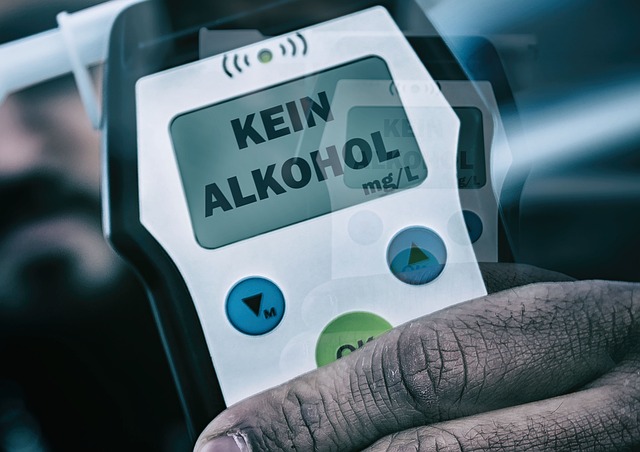Support groups are vital for understanding drug interactions and navigating DUI law complexities in addiction recovery. These groups empower individuals to make informed decisions, connect with legal professionals, break down stigmas, and foster community, ensuring a smoother transition towards sobriety while adhering to legal requirements. Peer support revolutionizes recovery by offering a safe space for sharing experiences and practical advice.
Support Groups for Recovery: A Journey to Wellness begins with understanding the intricate dynamics within these communities. This article explores the multifaceted aspects of addiction recovery, focusing on drug interaction, legal considerations through DUI law, and the power of peer support. We delve into group dynamics that foster safety and healing, offering a comprehensive guide for those navigating the complex path to overcoming addiction. By understanding these key factors, individuals can find strength in community and improve their chances of long-term recovery.
- Understanding Drug Interaction in Recovery Groups
- Navigating DUI Law: Legal Support for Addicts
- The Role of Peer Support in Overcoming Addiction
- Building a Safe Space: Group Dynamics for Recovery
Understanding Drug Interaction in Recovery Groups

In the context of recovery groups, understanding drug interactions is crucial for a safe and effective healing process. Many individuals in recovery may be taking prescribed medications as part of their treatment plan, and it’s essential to recognize that these substances can interact with illegal drugs or other medications, potentially leading to adverse effects. For instance, those struggling with substance abuse issues might still be facing challenges adhering to a DUI law if they are unaware of these interactions, putting their recovery at risk.
Support groups play a vital role in educating members about drug interactions and the importance of open communication with healthcare providers. By fostering awareness, these groups enable individuals to make informed decisions regarding their medication regimens and overall well-being. This knowledge can be a game-changer in navigating the complexities of addiction recovery and ensuring a smoother transition towards a healthier, substance-free life.
Navigating DUI Law: Legal Support for Addicts

Navigating the complex web of DUI law can be daunting for anyone, but especially for those in recovery from drug addiction. When a substance use disorder intersects with the legal system, understanding the potential consequences is crucial. A support group focused on recovery together can provide much-needed guidance and legal resources to help members navigate these challenging waters.
These groups often connect individuals with experienced attorneys who specialize in DUI cases involving drug interactions. Members gain insights into their rights, potential defenses, and the best strategies for building a strong case. By fostering an environment of openness and trust, support group participants can share their unique experiences, learn from one another’s legal journeys, and collectively empower themselves to make informed decisions throughout the legal process.
The Role of Peer Support in Overcoming Addiction

Peer support plays a pivotal role in helping individuals overcome addiction, offering a powerful alternative to traditional treatment methods. In the context of drug interaction and DUI law, support groups provide a safe space for those struggling with substance abuse to connect with peers who have experienced similar challenges. This shared understanding fosters a sense of camaraderie and encourages open communication, breaking down the isolation often associated with addiction.
Through regular meetings, members learn from one another’s experiences, offering and receiving encouragement as they navigate the complexities of recovery. Peer support helps individuals develop coping strategies, build resilience, and gain insights into managing triggers. By sharing stories and strategies, group members can dispel myths about addiction, challenge negative beliefs, and reduce the stigma often attached to seeking help. This collective approach not only enhances recovery outcomes but also promotes a sense of community, vital for long-term sobriety.
Building a Safe Space: Group Dynamics for Recovery

In the context of recovery, creating a safe and supportive environment is paramount. Support groups for recovery together play a pivotal role in fostering this space, where individuals can come together, share their experiences, and offer mutual support. The dynamics within these groups are carefully crafted to ensure every member feels accepted, understood, and encouraged. This sense of belonging is crucial, especially for those navigating the complexities of drug interaction and DUI law, as it provides a sanctuary free from judgment or stigma.
Group members often develop strong bonds, creating a network of peers who have faced similar challenges. This peer-to-peer support can be immensely powerful, offering practical advice, emotional reassurance, and a fresh perspective on recovery. The group dynamic encourages open communication, allowing individuals to discuss their struggles, successes, and strategies for coping with drug interactions and legal consequences, such as DUI-related issues.
Support groups play a pivotal role in the recovery journey by offering safe, peer-driven spaces where individuals can navigate addiction’s challenges. By understanding drug interactions and providing legal guidance through DUI law resources, these groups empower members to overcome obstacles. The power of peer support is undeniable, fostering a sense of community that helps build resilience against addiction. With the right tools and support, recovery becomes a tangible goal for those seeking a brighter future free from substance abuse.






